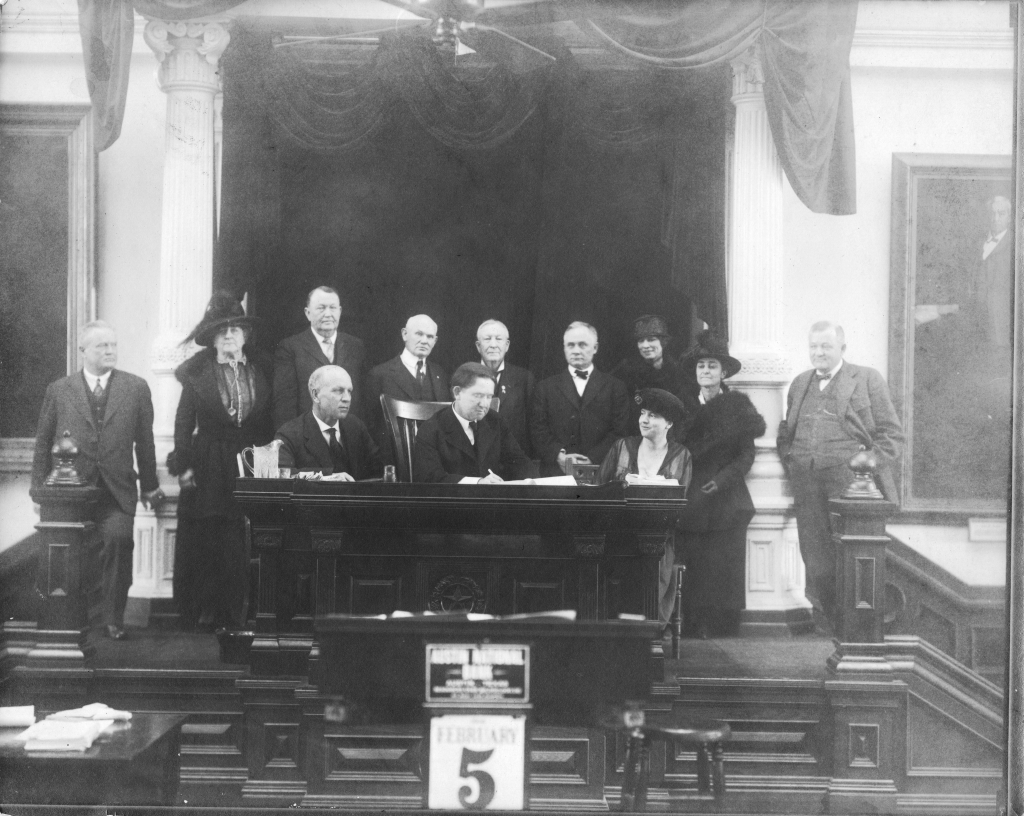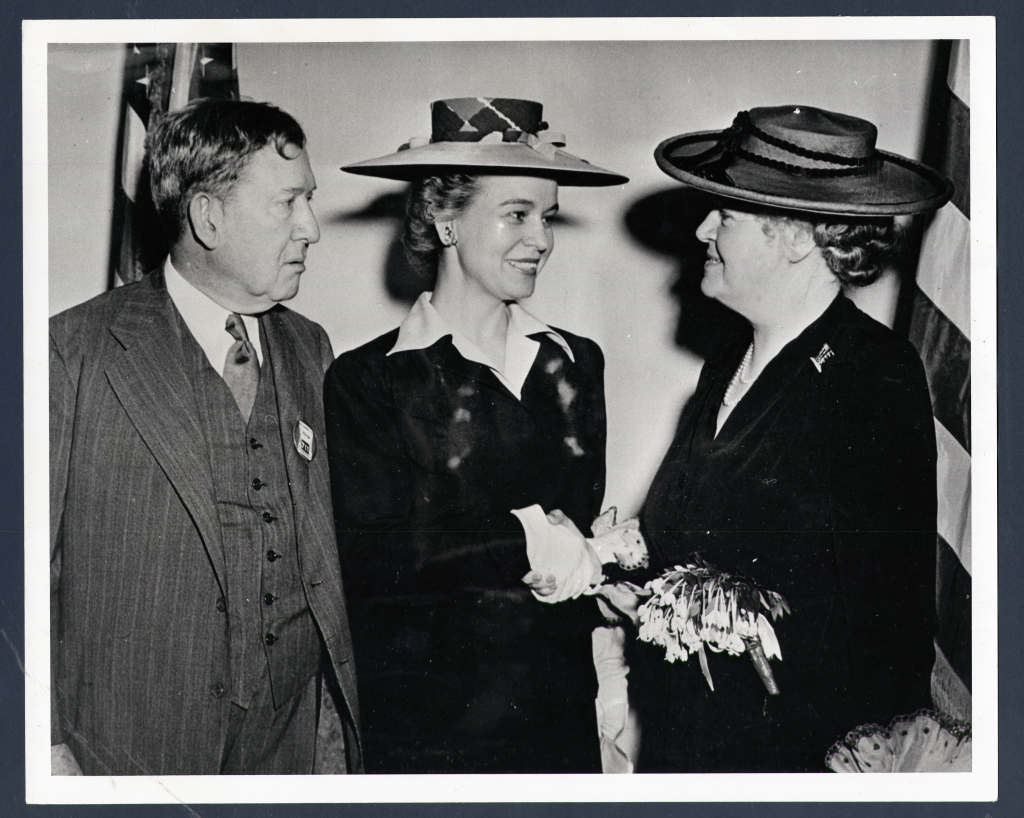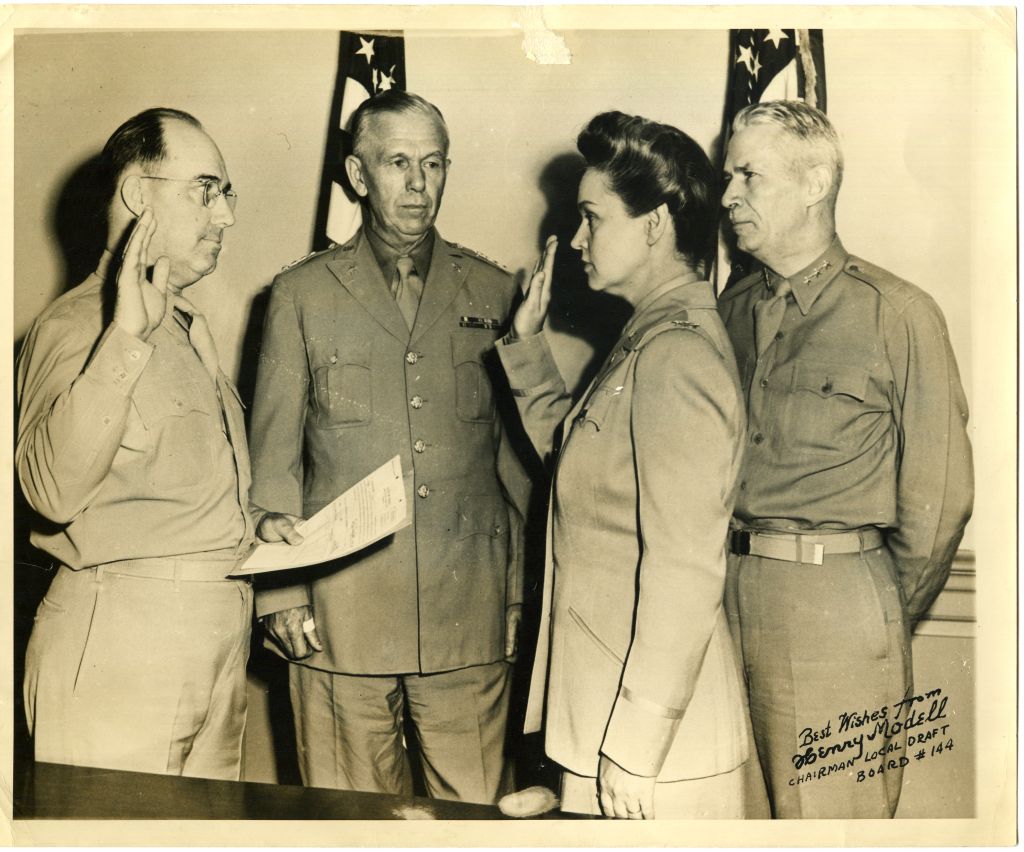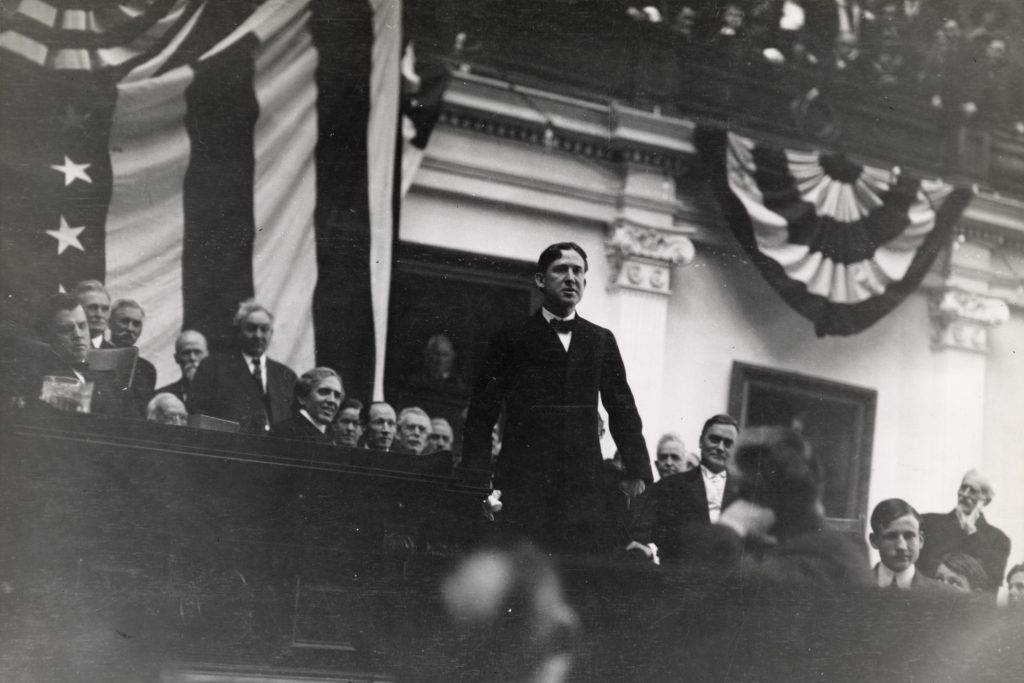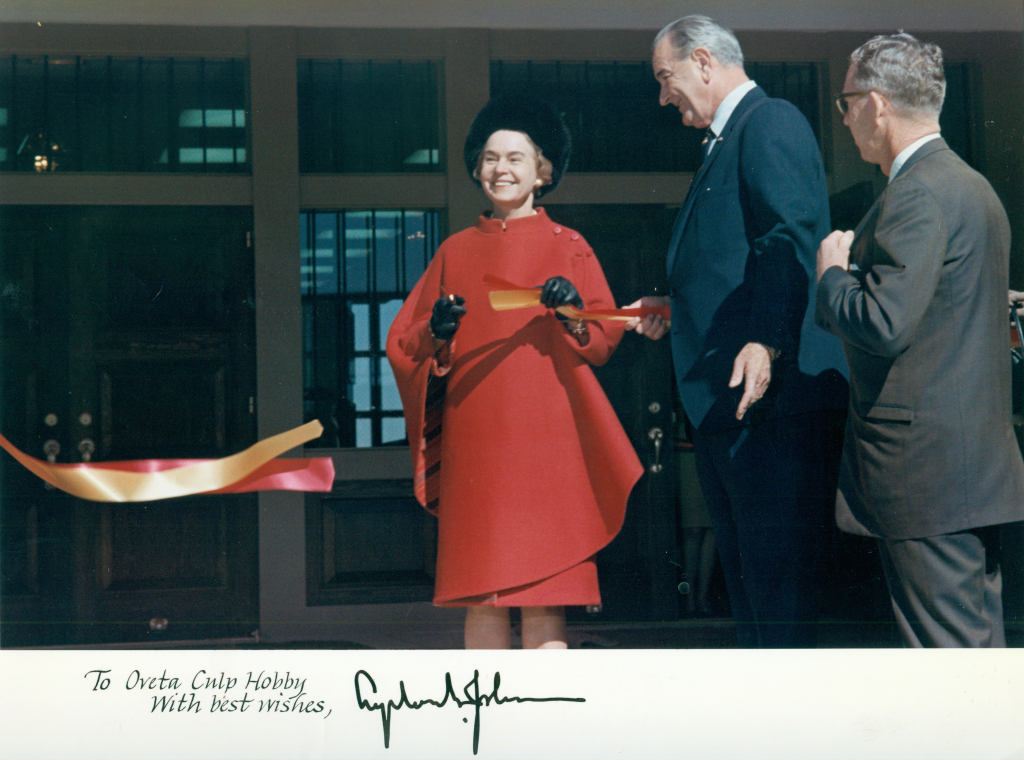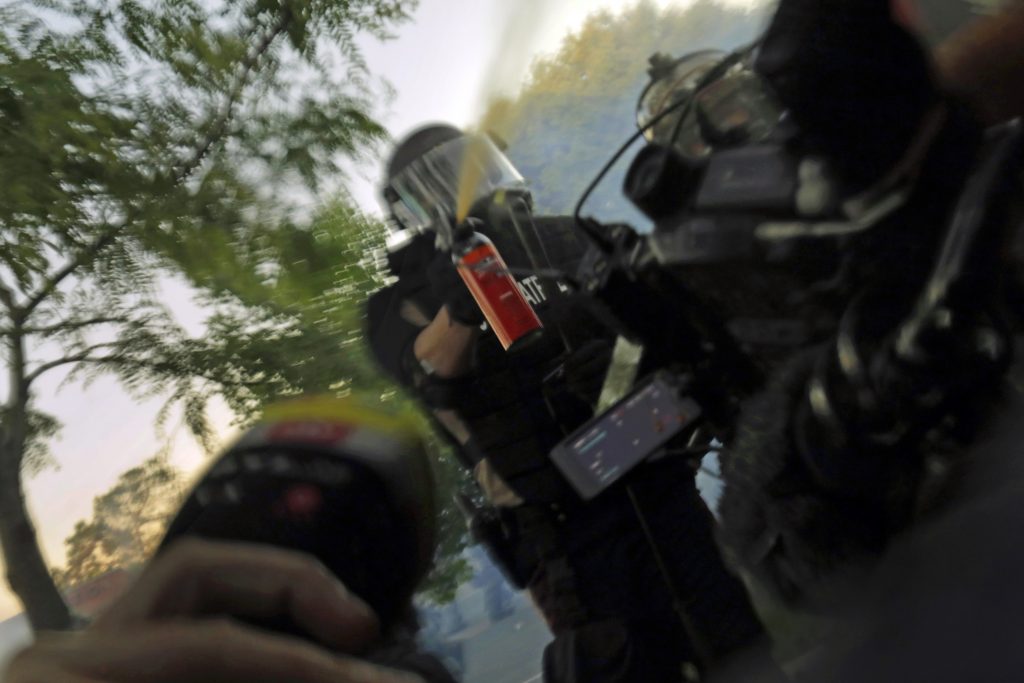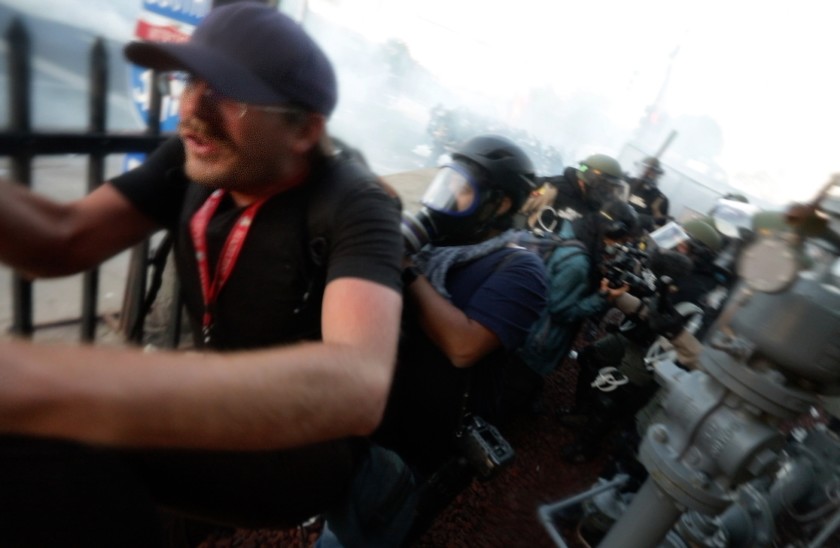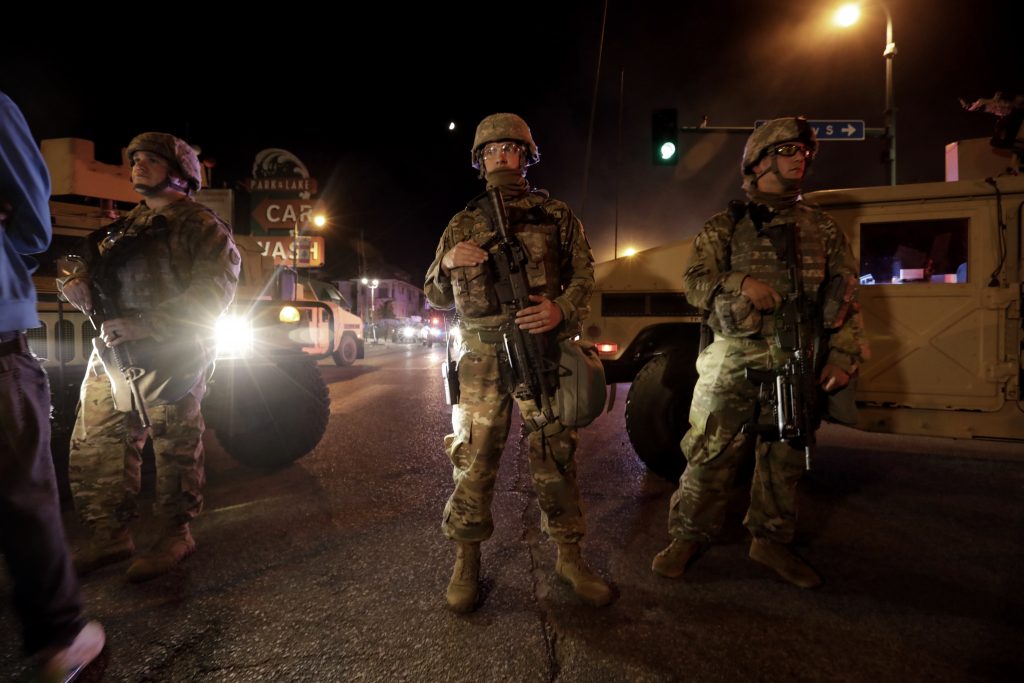After establishing himself as a pioneer in the news media industry in Texas, Will Hobby served as Lt. Gov. of Texas from 1915 until September 1917, when he became Governor. He led Texas’ effort to support the American military during World War I, and he had to resolve significant political and social issues that swept the state and the nation, including lawlessness and corruption on the state’s southern border, and heated battles over prohibition and women’s suffrage. Will signed the bill giving women the right to vote in primary elections, and he subsequently played a role in the ratification of the 19th amendment to the U.S. Constitution.
During World War II Oveta took her place on the national stage as the celebrated founding commander of the Women’s Army Corps. In recognition of her extremely difficult but outstanding performance during the war, she received the Distinguished Service Medal, the first woman so honored. In 1953, Oveta became only the second woman in U. S. history to serve on a presidential cabinet when Eisenhower appointed her as the Secretary of the newly established Department of Health, Education, and Welfare. While head of the HEW, Oveta directed the effort to expand the number of Americans covered by Social Security, and she oversaw the development and controversial distribution of the Salk polio vaccine.
The “Hobby Team” of Will and Oveta quickly forged an intimate personal and professional relationship leading to the establishment of an influential media business that eventually included ownership of the Houston Post and Houston’s pioneering KPRC Radio and KPRC TV.
On this episode, we interview Don Carleton, the Briscoe Center’s executive director. Don joins us to discuss his most recent book, a dual biography of Will and Oveta Hobby, The Governor and the Colonel.
